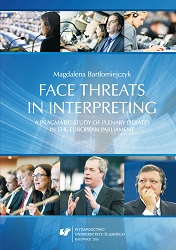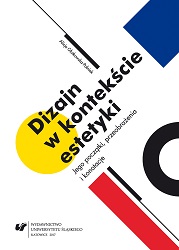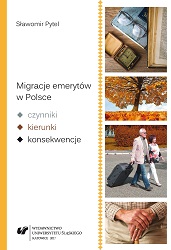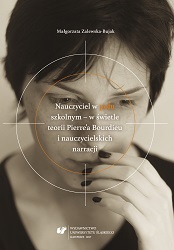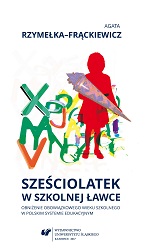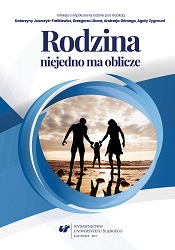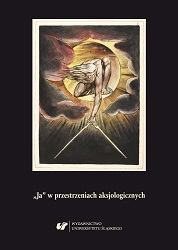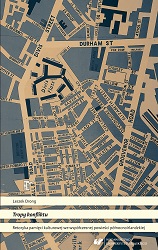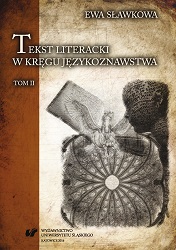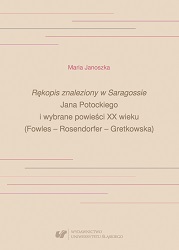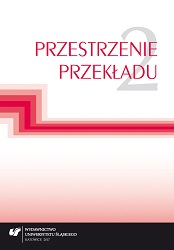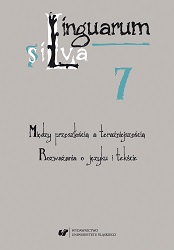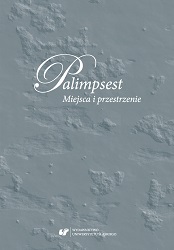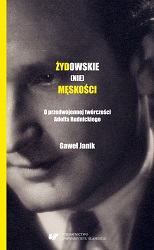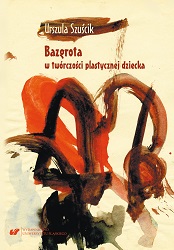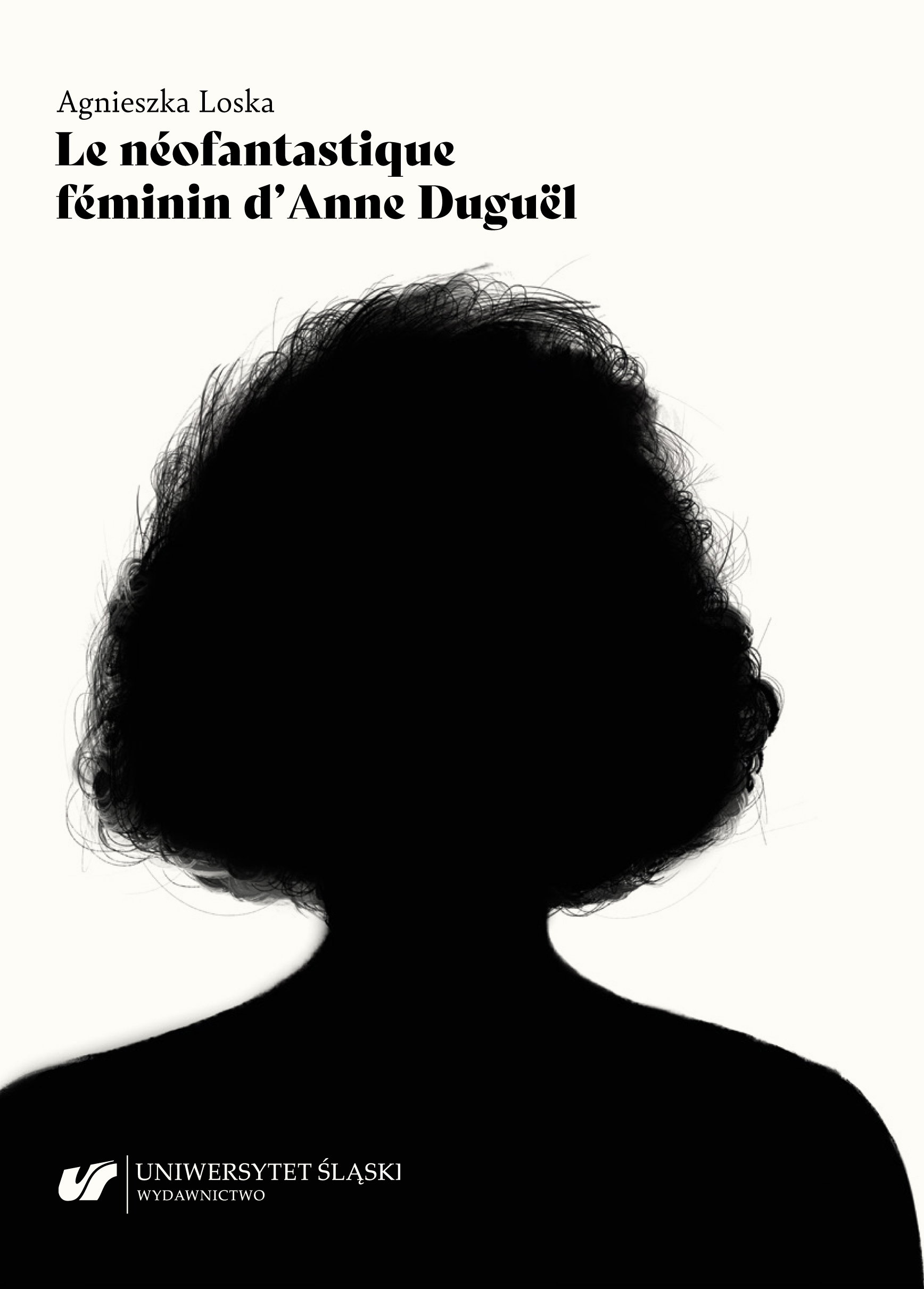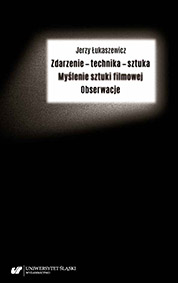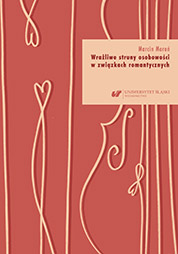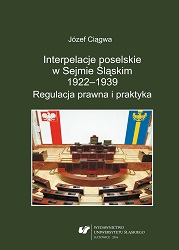
Deputy interpellations in Silesian Sejm 1922—1939. Legal regulation and practice
Interpelacje poselskie w Sejmie Śląskim 1922–1939. Regulacja prawna i praktyka
Keywords: Silesian Sejm; Deputy interpellations; Power tribe; Equilibrium of the tripartite authorities
Legal regulation of deputy interpellations in Silesian Sejm 1922—1939The material right of interpellation was assessed by Art. 14 of Constitution Act of July 15, 1920, which contained the organic statute of Silesian voivodeship (Dz.U.R.P. No 73, pos. 497) constituting that Silesian Sejm had the right to interpellate with the Silesian voivode andVoivodeship Council. On the other hand, the formal right to interpellate, and therefore the manner in which material right was realized, was to be specified by the act on the internal constitution of Silesian voivodeship. Nevertheless, advanced — especially in the 1930s — works on the bill did not lead to adopting the act on internal constituton. In such a situation the interpellating procedure was regulated by the standing orders of the Silesian Sejm: the interim orders (of October 13, 1922) and the permanent orders (of January 31, 1923), the standing orders of the I Silesian Sejm, the standing orders of the II Silesian Sejm of June 17, 1930, the standing orders of the Silesian Sejm of the IV term of office, adopted on March 11, 1936. As for the material right on interpellation, one has to notice some disturbing, because against the law, transformations: the appearance of the third interpellated body, namely the Council of Ministers, in the standing orders of the II Silesian Sejm, and the omission of Voivodeship Council as the interpellated body in the standing orders of March 11, 1936.The Provisions of the standing orders of the Silesian Sejm sittings, thus art. 44 of two standing orders of the sitting of the Silesian Sejm of the I term of office; art. 24 and 25 of the standing orders of the II Silesian Sejm; art. 84 of the standing orders of the Silesian Sejm of the IV term of office, allow to identify three subsequent periods of interpellation, i.e. the first period: accepting the interpellation by the marshal and submitting it to the interpelled; the second period: performing the interpellation by the interpelled body and submitting a reply to the marshal; the third period: lodging the interpellation at the orders of the day of the plenary sitting, discussion, voting for acknowledging the reply (or, alternatively, for not acknowledging the reply). Submission the interpellation to the Sejm Marshal was possible after meeting three formal requirements: obtaining the minimal required support, expressed by the number of signatures on the interpellation (7 signatures in the standing orders dated October 13, 1922 and January 31, 1923; 5 signatures in the standing orders dated June 17, 1930; 3 signatures in the standing orders dated March 11, 1936); the interpellation could not contain any expressions that would violate Sejm dignity (this condition is found only in the standing orders of the II Silesian Sejm); the interpellation required written form; it had to be formulated in the Polish language. Provisions concerning the latter requirement were specified by two Silesian acts, i.e. the act of January 16, 1923 on the official language on the territory of Silesian Voivodeship (Dz.U.Śl. No 5, pos. 34) and the act of July 16, 1937 on the official language of authorities and administration offices in Silesian voivodeship (Dz.U.Śl. No 14, pos. 32). Article 44 of the standing orders of the I Silesian Sejm specified that the interpellated body would submit an oral reply at the plenary sitting; whereas a written reply was to be submitted only when interpellants had given their assent to it in advance. It follows from the Provisions of the standing orders of the I and II Silesian Sejms that the interpellated body had to respond within the period no longer than three weeks. Moreover, the standing orders of the Silesian Sejm of the I term of office obliged the marshal to inquire when the interpellated body would submit their response to the interpellation. There were no orders of Silesian voivode as far the second period of interpellating was concerned. An extrasilesian source, as regards the second period of interpellating, was the circular of the Minister of the Interior No OL. 9673 dated November 23, 1926 on taking a stance on interpellations submitted before the closing of the session (Dz.Urz. MSW No 5, pos. 117), despite thefact that formally it did not regulate the interpellation procedure in the Silesian Sejm. Besides, it is difficult to find there any regulations specifying the procedure of performing interpellations, since the minister recommended not performing the interpellations submitted before the suspension of the session. Article 44 of the standing orders of the I Silesian Sejm obliged the marshal to lodge the interpellation at the order of the day of the plenary sitting within the period no longer than three weeks. Whereas article 25 of the standing orders of the II Silesian Sejm specified two alternative factors of lodging the interpellation by the marshal at the order of the day, i.e. in the case when interpellants would not be satisfied with the reply or when the relevant executive authority would not reply to the interpellation within 3 weeks.More detailed was the legal regulation of interpellating of the third period. In accordancewith the provisions of two standing orders of the I Silesian Sejm, the marshal lodged the interpellation at the order of the day ex officio. Only then were further actions of the third period undertaken: explanatory statement of the interpellation by the interpellant (with the support of at least 7 deputies); replying or refusing to reply by the interpellated body; opening the discussion upon request with the support of at least 13 (later10) deputies. The final action of the third period was Sejm’s taking a stance on the reply to the interpellation, being expressed in the form of two alternative resolutions: the resolution on acknowledging the reply of the interpellated body or a resolution on not acknowledging the reply of the interpellated body. On the grounds of the standing orders of the II Silesian Sejm, lodging the interpellation at the order of the day by the marshal could take place exclusively on interpellants’ demand. Besides, the debate on the interpellation and the reply to it could take place on the basis of the resolution of the entire Sejm, and not with the support of 13 or 10 deputies. What is more, passing the resolutions that evaluated the interpelled body’s reply by Sejm was of a facultative character. Pursuant to art. 84 paragraph 4 of the standing orders of the IV Silesian Sejm, the marshal lodged the interpellation at the order of the day of plenary sitting in three cases: on interpellants’ demand; if the voivode notified the marshal that he intended to give an oral reply; when the period of 3 months had passed since the interpellation was submitted. Moreover, the debate (discussion) followed on the basis of the resolution issued by Sejm. An important restriction on the effectiveness of interpellating was provided by act 84 paragraph 6 of the latter standing orders, constituting that in the debate, apart from the representative of the Government, also one of interpellants and one of the deputies whose stance is different from the one expressed by the interpellants were allowed to take the floor. The comparison of the rules regulating the interpellation procedure in four standing ordersof the Silesian Sejm demonstrates that with the passing of time legal provisions restricted theeffectiveness of interpellating by means of the following: limiting the admissibility of the debate on the reply to the interpellation; the participation in the discussion of a deputy whose standpoint was different from the one of interpellants; excluding the possibility of expressing the opinion on the reply by Sejm, in the form of a resolution on acknowledging the reply of the interpellated or, alternatively, on not acknowledging the reply of the interpellated. Interpellation practice in Silesian Sejm 1922—1939The problem of conformity of practicing with legal regulation of interpellating Art. 44 of two standing orders of the I Silesian Sejm obliged the marshal to pose a question to the interpelled body about time when the interpelled body would submit their reply to the interpellation. The review of 90 interpellations of Silesian Sejm of I term of office demonstrates that not even once did the marshal pose such a question. The same article specified that the written form of the reply was permissible only if the interpellants agreed to it in advance. In practice, the interpellated body provided their reply almost exclusively in the written form, despite the fact that the interpellants agreed to the written form only in three cases. With the exception of three cases, whereby — clearly by mistake — the marshal accepted the interpellation despite the lack of one signature, in the remaining cases the minimal required support was adhered to. So was the case in the Silesian Sejm of I, II, and III terms of office. The standing orders of first three Sejms specified that a deadline for replying to the interpellation should not exceed 3 weeks. In the replies that were found, the addressee of the interpellation usually exceeded, sometimes considerably, the deadline specified in the standing orders. There were merely few replies submitted within the deadline. The contents of several interpellations were beyond the scope of the competences of the voivode and the Voivodeship Council. These were interpellations concerning special (non-consolidated) administration, i.e. judicial, military, or railroad administration, as well as interpellations that fell within the competences of the voivode of Cracow, or even the Ministry of Foreign Affairs. Silesian voivodes replied to these interpellations as well, acting as intermediaries, sending the interpellations themselves to appropriate authorities and offering on their behalf adequate explanation to the interpellants.The first action of the third period of interpellating was lodging the interpellation by themarshal at the order of the day of the plenary sitting, and the final action was formulating anopinion — a positive or negative one — by Sejm about the reply submitted by the interpelledbody.Pursuant to the provisions of two standing orders of the I Silesian Sejm, the marshal lodged the interpellation at the order of the day ex officio. In practice, marshal Konstanty Wolny lodged at the order of the day of I Silesian Sejm merely 5 interpellations, two of which were lodged on interpellants’ request. In the final period of interpellating, 3 replies were acknowledged by Sejm, and 2 replies were not acknowledged. In III Silesian Sejm, the marshal lodged 4 interpellations at the order of the day. The voivode’s reply to one of them was acknowledged by Sejm, one reply was not acknowledged. In the case of the remaining two replies, the motions were not voted on. In practice — as a matter of fact against the law — the marshal of Silesian Sejm did not lodge interpellations at the order of the day when interpellants accepted the reply. In such situations, probably after consulting the interpellants, the marshal terminated the proceedings of the second period, endorsing on the interpellation and on the reply ad acta. Due to the lack of sources, the question concerning the relationship between the statute law and the law realized in interpellating practice of IV Silesian Sejm must be left unanswered.Interpellating activity of parliamentary clubs (deputies) of Silesian SejmIn four Silesian Sejms there have been 141 interpellations altogether. The authors of 136 interpellations were parliamentary clubs, of 2 — Sejm committees, and in IV Silesian Sejm — in the absence of parliamentary clubs — deputies signed on the interpellations. The frequency of interpellating exhibited high variability: in I Silesian Sejm — 90 interpellationsper 187 plenary sittings; in II Silesian Sejm — 15 interpellations per 10 sittings; in IIISilesian Sejm — 33 interpellations per 49 sittings; in IV Silesian Sejm — 3 interpellations per32 sittings. In the period of three Silesian Sejms the PPS club (Polish Socialist Party), referred to as KPS (Club Socialist Deputies) in III Silesian Sejm, submitted the most, i.e. 41, interpellations, which constituted 29,7% of all (138) interpellations that were submitted to the marshal in the period between October 10th, 1922 and March 26th, 1935. In the second place, with 26 interpellations (18,8%), was ChD (Christian Democracy). Such a result, gained almost exclusively until the May Coup, when Christian Democracy formed a part of ruling coalition, contradicts the thesis that interpellations, as a means of controlling administration,serve opposition more than factions in power. The interpellating practice proves the truthfulness of this thesis in the period ranging from the May Coup up to the last sitting of IIISilesian Sejm, when opposition factions submitted 50 interpellations, while the sanation clubNChZP (National Christian Labour’s Unity) — only 2 interpellations. Twenty-one interpellations (15,2%) were submitted by NPR (National Workers’ Party). Two workers’ parties (PPS and NPR) altogether lodged 62 interpellations, i.e. 44,9% of all interpellations(136) submitted by parliamentary clubs in Silesian Sejms of three terms of office. The Club of Deputies’ Group of Christian Democracy and National Workers’ Party, formed after the election failure of NPR in II (three deputies) and III (2 deputies) Silesian Sejm, submitted20 interpellations (2 in II and 18 in the III Silesian Sejm), which constituted 14,5% of allinterpellations, submitted in the Silesian Sejm during three terms of office. KN (German Club) interpellated individually 14 times (10,1%), joint interpellations were altogether 14 (10,1%), i.e. 8 interpellations in I and 6 interpellations in III Silesian Sejm. The authors of 3 interpellations of the IV Silesian Sejm were deputy Józef Płonka (NChZP— National Christian Work Union), deputy Paweł Kubik (ZZP — Polish Trade Association), andnon-partisan deputy form Zaolzie, Rudolf Paszek. Therefore, formed in the year 1928, the sanation club NChZP, with merely 3 interpellations (2 in II and 1 in the IV Silesian Sejm) occupied the last place, exhibiting a very insignificant activity as far as interpellating was concerned. The analysis of the content of interpellations submitted by parliamentary clubs(Sejm committees, deputies) in Silesian Sejm The content of interpellations allows to distinguish the following thematic groups: interpellations on social affairs, political issues, sociopolitical affairs, educational problems, public security matters, communication issues, construction issues, and police affairs. Moreover, there can be identified other matters, which encompass a wide range of issues that go beyond the uppermentioned categorization. Interpellations on social affairs were dominated by two parliamentary clubs of workers’ parties, i.e. KPPS (Club Polish Socialist Party), later KPS (Club Socialist Deputies), with 15 interpellations per 41 interpellations in total) and KNPR (Club of National Workers’ Party) with 11 interpellations (per 21 interpellations in total). Altogether, both clubs of workers’ parties interpellated 26 times per 62 interpellations submitted by them. KChD (Club of Christian Democracy) interpellated on social affairs 7 times (per total 26 interpellations that they submitted). Of 3 interpellations submitted to the marshal by sanation party KNChZP (Club of National Christian Labours limity), 3 interpellations concerned social issues (2 in II Silesian Sejm, 1 in IV Silesian Sejm). Into the class of interpellations on social affairs, one also has to include 3 interpellations submitted by KZPChDiNPR (The Club of Deputies’ Group of Christian Democracy and National Workers’ Party). Moreover, there were 3 interpellations submitted by KN and 3 joint interpellations. In total, in four Silesian Sejms there were 45 interpellations concerning social affairs (per 141 interpellations altogether), which constituted 31,9% of all interpellations.A significant percentage of such interpellations in relation to their total number faithfullyreflected social problems of Silesia: increasing unemployment, lockouts, workers’ dismissals,irregular payment of benefits, the lack of insurance against unemployment, mass job dismissalnotes, celebrating holidays (i.e. working not on all days of the week), suspending by fraternities the payment of pensions and other dues, etc. Interpellations concerning political affairs were 31. In this thematic group, in majority (13) were joint interpellations (interpartisan). Nine interpellations on political issues were tabled by KZPChDiNPR; 4 interpellations — by KPPS; 2 — by KChD; 1 interpellation was submitted by each of the following clubs: KNPR, KN, and also NChZP deputies. A small group, merely 8, of interpellations on sociopolitical affairs (5,7%) was constituted by 6 interpellations by KNPR, 1 interpellation by KChD, and 1 interpellation by KPPS. The contents of these interpellations demonstrates a close relationship between political affairs and social issues. The examples of such a relationship may be interpellations on implementing on the Silesian voivodeship — without the consent of Silesian Sejm- the spirits monopoly law, or interpellations on inadequate distribution of tobacco warehouses, in which incorrect application of law could deprive many people of their work. As far other thematic groups are concerned, there must be identified the following numbers of interpellations submitted by parliamentary clubs:— on schools affairs: 12 interpellations (5 by KChD; 1 by KNPR, 3 by KN, 3 by KZPChDil-NPR);— on public security issues: 3 interpellations (1 by KChD; 2 by KN);— on communication issues: 3 interpellations (2 by KChD; 1 by KN);— on construction affairs: 3 interpellations (1 by KChD; 1 by KPPS; 1 by KZPChDiNPR);— on police affairs: 3 interpellations by KPPS;— on other affairs: 32 interpellations (7 by KChD; 2 by KNPR; 3 by KN; 12 by KPPS; 4 byKZPChDiNPR; 3 joint; 1 by non-partisan deputy Rudolf Paszek).
More...

